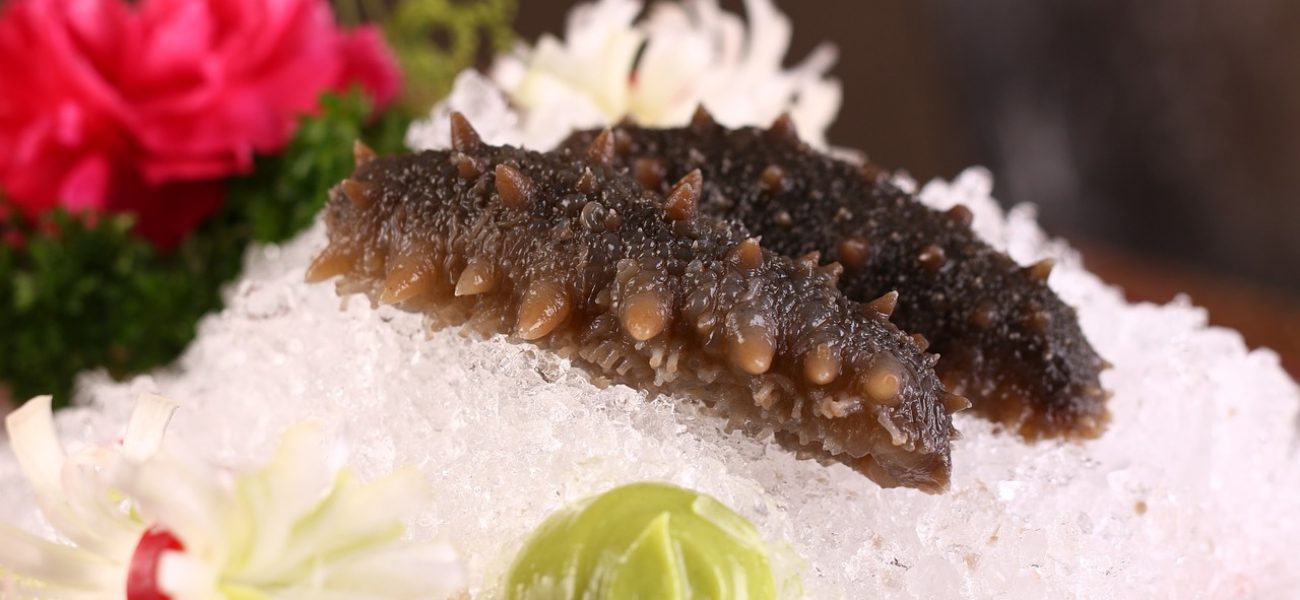In Asian and Middle Eastern cultures, sea cucumbers hold an esteemed position as a cherished tonic and traditional medicine. This reverence explains their higher price compared to other seafood options. In fact, they are hailed as one of the “Eight Treasures of the Sea,” alongside prized delicacies like fish bones, shark fin, abalone, fish maw, scallop, fish lips, and fish roe.
The captivating allure of sea cucumbers lies in their multifaceted benefits, making them a sought-after ingredient. Their rich medicinal value, coupled with their gastronomic appeal, has established them as a true oceanic treasure.
With the advancements and innovations in medicine and science, sea cucumber, renowned for its medicinal value, has emerged as a captivating focus of research for scientists and medical experts. Sea cucumber is a nutrient-rich food, boasting low fat and high protein content. Extensive studies have revealed a myriad of pharmacologically active components present in sea cucumber, including amino acids, collagen, mucopolysaccharides, chondroitin sulfate, sea cucumber saponins, and Omega-3 fatty acids. These remarkable active substances not only enhance the overall health benefits of sea cucumber but also contribute to its potential therapeutic effects.
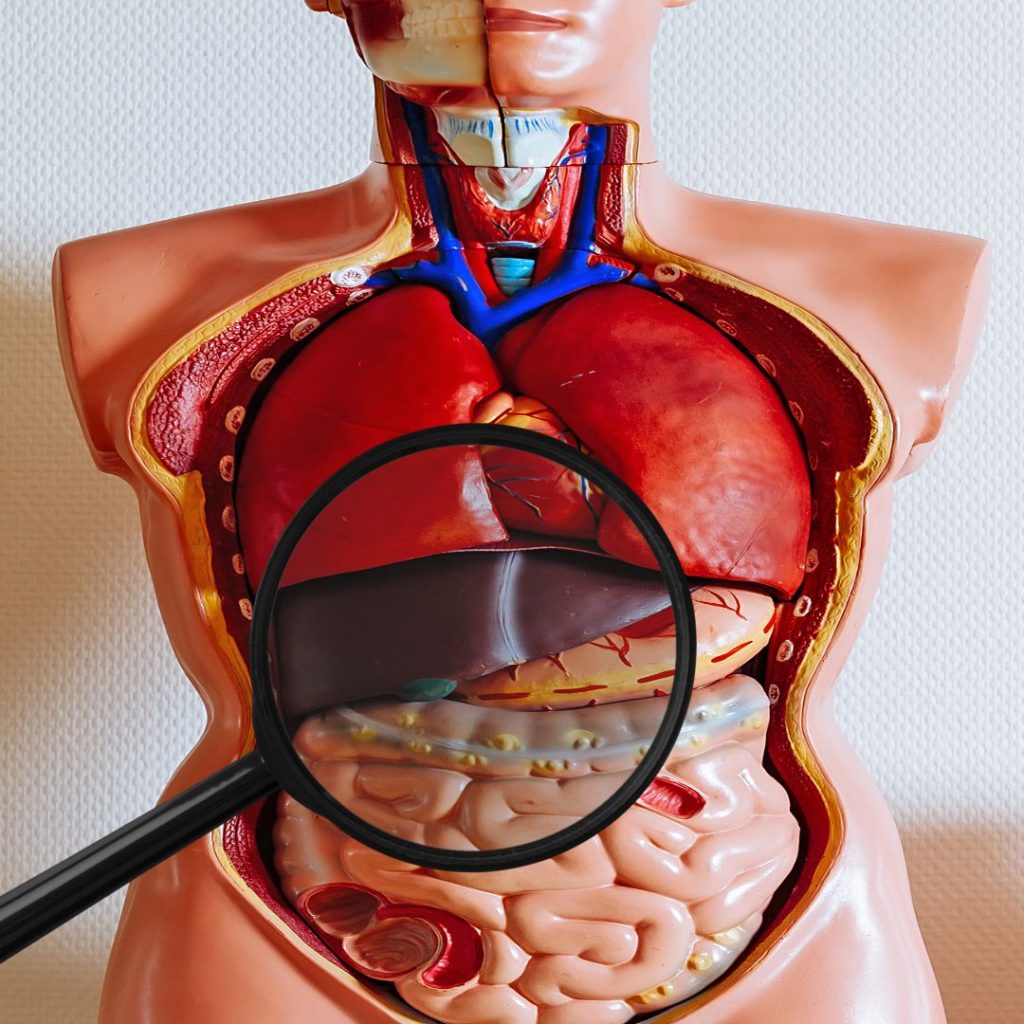
Sea cucumber is one of the nourishing foods known for its hepatoprotective effects, meaning it helps protect the liver.
The active components found in sea cucumber have been found to have liver-protective and liver cell regeneration properties. Studies indicate that the saponins and polysaccharides in sea cucumber help enhance glucose and lipid metabolism, regulate blood lipid and glucose levels, improve insulin sensitivity, inhibit liver fat accumulation, and prevent liver damage, thus promoting liver health. Moreover, research suggests that sea cucumber can be used for the treatment and prevention of liver diseases such as hepatitis and fatty liver.
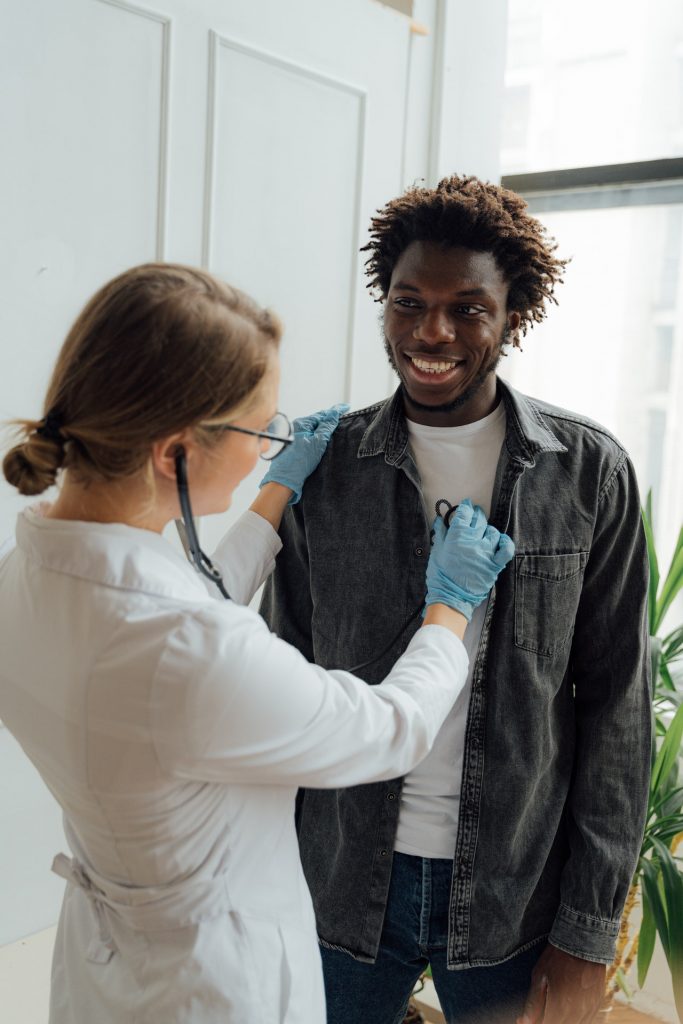
Apart from protecting the liver, sea cucumber also contributes to cardiovascular health.
Active components found in sea cucumber, such as saponins, polysaccharides, and collagen peptides, play a role in combating thrombus formation, lowering blood pressure, and reducing blood lipids, thus safeguarding cardiovascular well-being. Furthermore, research has revealed that sea cucumber’s glycosaminoglycans possess antithrombotic and anticoagulant activities, effectively decreasing blood viscosity and inhibiting clot formation. Sea cucumber saponins, on the other hand, can lower cholesterol and triglyceride levels in the bloodstream, promoting healthy blood circulation and mitigating the risk of cardiovascular blockages.
*It is important to note that individuals with cardiovascular conditions or those taking anticoagulant and related medications should seek medical advice before incorporating sea cucumber into their diet.
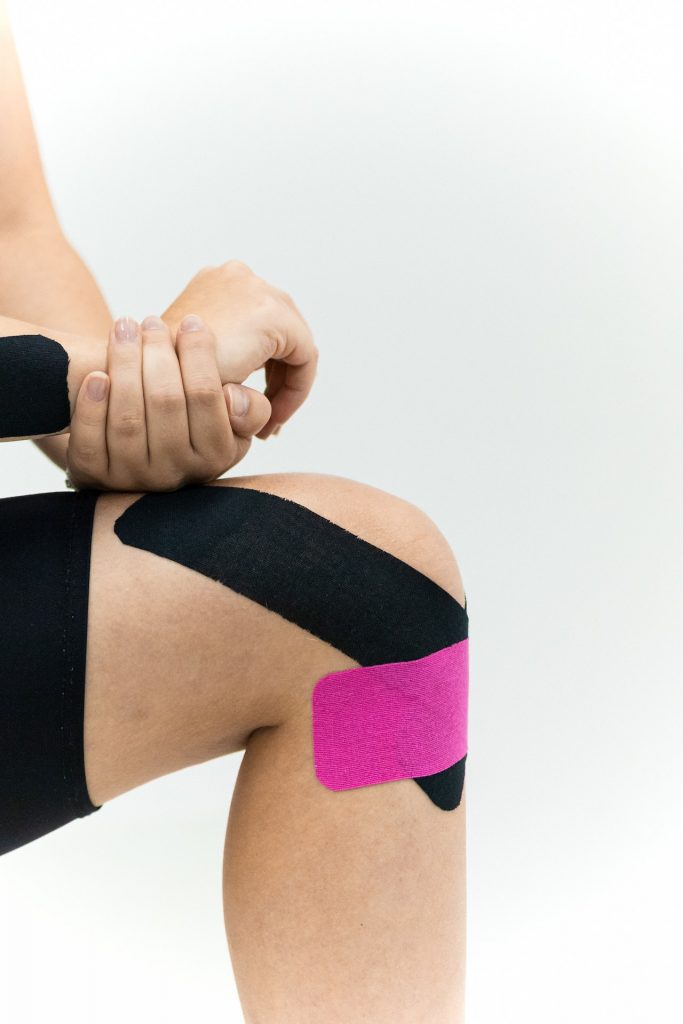
Collagen is the most abundant among all the pharmacologically active components of sea cucumber and is beneficial for bones and joint health.
Studies have shown that approximately 70% of the proteins found in the body wall of sea cucumbers are collagen. Collagen is a crucial component of connective tissues, which play a vital role in linking bones together. This makes sea cucumber an excellent nutritional supplement for promoting joint and skeletal health.
Furthermore, collagen has been found to have beneficial effects as an adjunctive treatment for osteoporosis and osteoarthritis. It helps increase bone density and protects joint cartilage. In addition to collagen, sea cucumber also contains mucopolysaccharides, chondroitin sulfate, and glucosamine, which are known to be beneficial for arthritis. These components serve as key elements in maintaining joint and cartilage health.

In addition to its benefits for joint and skeletal health, collagen in sea cucumber also possesses powerful skincare effects.
It helps reduce wrinkles, improve skin elasticity, and enhance the overall structure and texture of the skin. The active components found in sea cucumber, such as mucopolysaccharides, chondroitin sulfate, peptides, and amino acids, also contribute to skin maintenance. Mucopolysaccharides and chondroitin sulfate promote skin cell regeneration, repair damaged skin cells, and accelerate wound healing. Peptides and amino acids stimulate the synthesis of collagen and elastin fibers, which helps enhance skin elasticity and resilience.
Moreover, studies have shown that sea cucumber not only aids in skincare but also accelerates wound healing and may even improve diabetic foot ulcers, as observed in animal experiments.
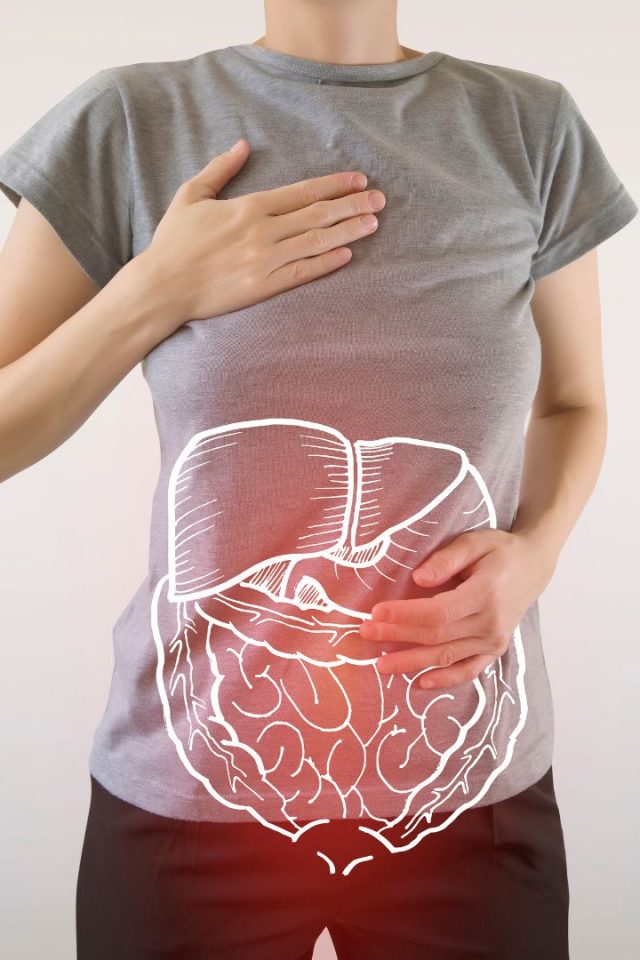
Sea cucumber also plays a role in protecting gastrointestinal health.
For instance, one of the active components in sea cucumber, fucoidan, has been found to improve gastritis and gastric ulcers. Furthermore, research suggests that sea cucumber can serve as a complementary treatment for gastrointestinal disorders caused by Helicobacter pylori infection.
Surprisingly, sea cucumber’s health benefits extend to promoting healthy bowel movements and increasing the frequency of defecation. This is attributed to its natural ability to lubricate the intestines, making it effective in alleviating constipation. However, individuals with compromised gastrointestinal function or frequent issues of loose stools and diarrhea should be cautious when consuming sea cucumber.
Although research on the bioactivity of sea cucumber is currently limited, a comprehensive literature review of publications from 2012 to 2021 has shed light on its potential health benefits. Sea cucumber is known to contain a diverse range of bioactive compounds, including triterpene glycosides (saponins), fucosylated chondroitin sulfate, cerebrosides, glycosaminoglycans, fucoidans, phospholipids, polysaccharides, peptides, alkaloids, Frondanol A5, and phosphatidylcholine. These compounds exhibit a wide array of activities, including anticancer, anti-hyperlipidemia, anti-hyperglycemia, anti-inflammatory, anticoagulant/antithrombotic, antioxidant, antihypertensive, immune modulation, wound healing, as well as potential therapeutic effects for Alzheimer’s disease and Parkinson’s disease. Although further research is needed, these findings highlight the vast potential of sea cucumber as a source of valuable bioactive compounds.
Discover the Traditional Health Supplement with Sea Cucumber as Main Ingredient in Malaysia :
Gold-G Bio Sea Cucumber
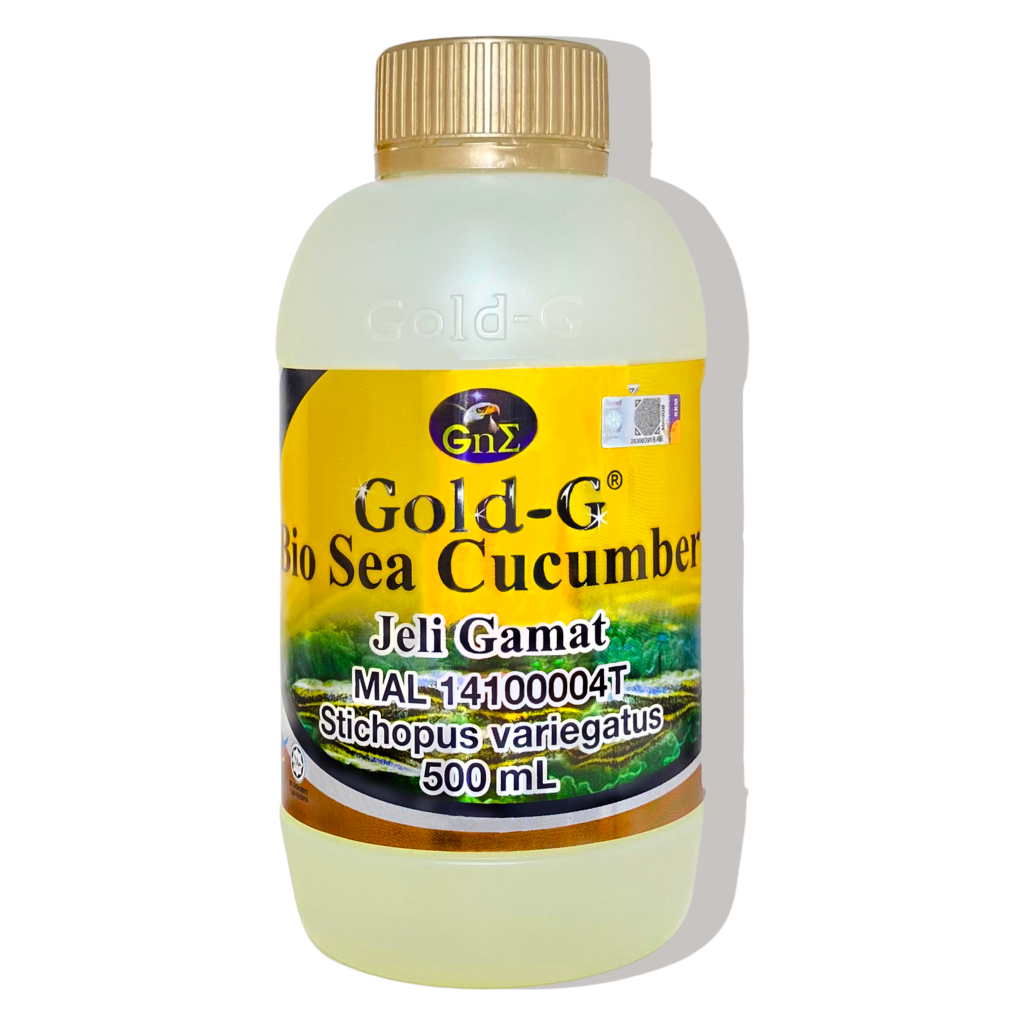
Gold-G Bio Sea Cucumber is a health supplement made from natural sea cucumber (stichopus variegatus) extract. It is the supplement with the highest concentration of sea cucumber extract available in the market and has been sold in Malaysia, Indonesia, and Singapore for over 20 years!
Gold-G Bio Sea Cucumber is produced in a factory that complies with Malaysia Pharmaceutical Good Manufacturing Practice standards. The production process ensures the extraction of high-quality sea cucumber products that retain the pharmacologically active ingredients while removing the fishy smell, resulting in a more nutritious and better-tasting supplement that is easier to consume.
Simply take 2 tablespoons (30mL) twice daily before each meal to enjoy the health benefits of sea cucumber consumption effortlessly!
Precaution:
This product contains animal part: Sea Cucumber.
Stop taking Gold-G Bio Sea Cucumber temporarily when you are experiencing cough with phlegm, diarrhea and soft stool. Please consult your pharmacist, doctor, or other healthcare providers about any other supplements / medications you are taking and other health problems.
Experience the power of Gold-G Bio Sea Cucumber and embark on a journey towards better health today.
References:
- Hu X, Li Z, Xue Y, et al. Dietary saponins of sea cucumber ameliorate obesity, hepatic steatosis, and glucose intolerance in high-fat diet-fed mice. J Med Food. 2012;15(10):909-916. https://doi:10.1089/jmf.2011.2042
- Fu X, Wen M, Han X, et al. Effect and potential mechanism of action of sea cucumber saponins on postprandial blood glucose in mice. Biosci Biotechnol Biochem. 2016;80(6):1081-1087. doi:10.1080/09168451.2016.1153950
- Zhu, Q.; Lin, L.; Zhao, M. Sulfated fucan/fucosylated chondroitin sulfate-dominated polysaccharide fraction from low-edible-value sea cucumber ameliorates type 2 diabetes in rats: New prospects for sea cucumber polysaccharide based-hypoglycemic functional food. J. Biol. Macromol.2020, 159, 34 –45. https://doi.org/10.1016/j.ijbiomac.2020.05.043
- Hu, S., Chang, Y., He, M., Wang, J., Wang, Y., & Xue, C. (2014). Fucosylated chondroitin sulfate from sea cucumber improves insulin sensitivity via activation of PI3K/PKB pathway. Journal of food science, 79(7), H1424–H1429. https://doi.org/10.1111/1750-3841.12465
- Bordbar S, Anwar F, Saari N. High-value components and bioactives from sea cucumbers for functional foods–a review. Mar Drugs. 2011;9(10):1761-1805. doi:10.3390/md9101761
- Khotimchenko Y. Pharmacological Potential of Sea Cucumbers. Int J Mol Sci. 2018;19(5):1342. Published 2018 May 2. doi:10.3390/ijms19051342
- Zhang, Lingyu & Song, S.-S & Xu, J. & Dong, P. & Xue, C.-H & Wang, Yu-ming. (2015). Effects of sea cucumber saponin on blood pressure in obese mice. Chinese Pharmacological Bulletin. 31. 1169-1174. 10.3969/j.issn.1001-1978.2015.08.028.
- Li Z, Wang H, Li J, Zhang G, Gao C. Basic and clinical study on the antithrombotic mechanism of glycosaminoglycan extracted from sea cucumber. Chin Med J (Engl). 2000;113(8):706-711.
- Zhu C, Zhang W, Liu J, et al. Marine collagen peptides reduce endothelial cell injury in diabetic rats by inhibiting apoptosis and the expression of coupling factor 6 and microparticles. Mol Med Rep. 2017;16(4):3947-3957. doi:10.3892/mmr.2017.706
- Porfírio, Elisângela & Fanaro, Gustavo. (2016). Collagen supplementation as a complementary therapy for the prevention and treatment of osteoporosis and osteoarthritis: a systematic review. Revista Brasileira de Geriatria e Gerontologia. 19. 153-164. 10.1590/1809-9823.2016.14145.
- Jerosch J. Effects of Glucosamine and Chondroitin Sulfate on Cartilage Metabolism in OA: Outlook on Other Nutrient Partners Especially Omega-3 Fatty Acids. Int J Rheumatol. 2011;2011:969012. doi:10.1155/2011/969012
- Siahaan, Evi & Pangestuti, Ratih & Munandar, Hendra & Kim, Se-Kwon. (2017). Cosmeceuticals Properties of Sea Cucumbers: Prospects and Trends. Cosmetics. 4. 26. 10.3390/cosmetics4030026
- Geahchan S, Baharlouei P, Rahman A. Marine Collagen: A Promising Biomaterial for Wound Healing, Skin Anti-Aging, and Bone Regeneration. Mar Drugs. 2022;20(1):61. Published 2022 Jan 10. doi:10.3390/md20010061
- Li, Po-Hsien & Lu, Wen-Chien & Chan, Yung-Jia & Ko, Wen-Ching & Jung, Chao-Chuen & Huynh Thi Le, Dung & Ji, Yu-Xiang. (2019). Extraction and characterization of collagen from sea cucumber (Holothuria cinerascens) and its potential application in moisturizing cosmetics. Aquaculture. 515. 734590. 10.1016/j.aquaculture.2019.734590. https://doi.org/10.1016/j.aquaculture.2019.734590
- Masre, siti fathiah & Yip, George & K.N.S., Sirajudeen & Che Ghazali, Farid. (2010). Wound Healing Activity of Total Sulfated Glycosaminoglycan (GAG) from Stichopus vastus and Stichopus hermanni integumental Tissue in Rats. International Journal of Molecular Medicine and Advance Sciences. 6. 49-53. 10.3923/ijmmas.2010.49.53.
- Li D, Li L, Xu T, et al. Effect of Low Molecular Weight Oligopeptides Isolated from Sea Cucumber on Diabetic Wound Healing in db/db Mice. Mar Drugs. 2018;16(1):16. Published 2018 Jan 8. doi:10.3390/md16010016
- Oh, H.-G., Moon, D.-I., Kim, J.-H., Kang, Y.-R., Park, J.-W., Seo, M.-Y., Park, S.-H., Kang, Y.-G., Choe, C.-H., Park, I.-S., Kim, J., Yu, K.-Y., Seol, E.-D., Kim, O.-J., & Lee, H.-Y. (2012). The effects of sea cucumber as an anti-gastritis, anti-gastric ulcer, and Anti-Helicobater. Journal of the Korean Society of Food Science and Nutrition, 41(5), 605–611. https://doi.org/10.3746/jkfn.2012.41.5.605
- Xu X, Chang Y, Xue C, Wang J, Shen J. Gastric Protective Activities of Sea Cucumber Fucoidans with Different Molecular Weight and Chain Conformations: A Structure-Activity Relationship Investigation. J Agric Food Chem. 2018;66(32):8615-8622. doi:10.1021/acs.jafc.8b01497
- Fonseca RJC, Mourão PAS. Pharmacological Activities of Sulfated Fucose-Rich Polysaccharides after Oral Administration: Perspectives for the Development of New Carbohydrate-Based Drugs. Mar Drugs. 2021;19(8):425. Published 2021 Jul 27. doi:10.3390/md19080425
This website does not provide medical advice. The content of this website, such as graphics, images, text and all other materials, is provided for reference and educational purposes only. The content is not meant to be complete or exhaustive or to apply to any specific individual’s medical condition. Always seek the advice of your doctor or other qualified health provider regarding a medical condition.

